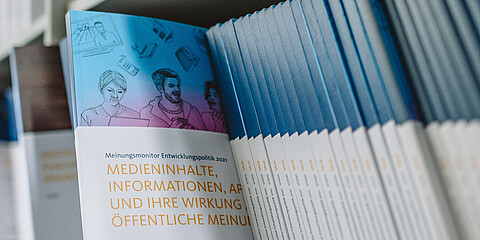The climate crisis poses enormous challenges for the international community. German development cooperation (DC) therefore supports its partner countries in implementing the Paris Agreement by promoting Nationally Determined Contributions (NDCs) and National Adaptation Plans (NAPs). In the NDCs, the contracting states specify the degree to which they plan to reduce their greenhouse gas emissions and to what extent they want to adapt to climate change. The NAPs incorporate the national adaptation policy into the development plans. Against this backdrop, in the course of the evaluation of interventions for climate change adaptation, DEval examined how effectively German DC supports NDCs and NAP processes. This policy brief presents the findings and recommendations of the evaluation.
Bibliographical information

